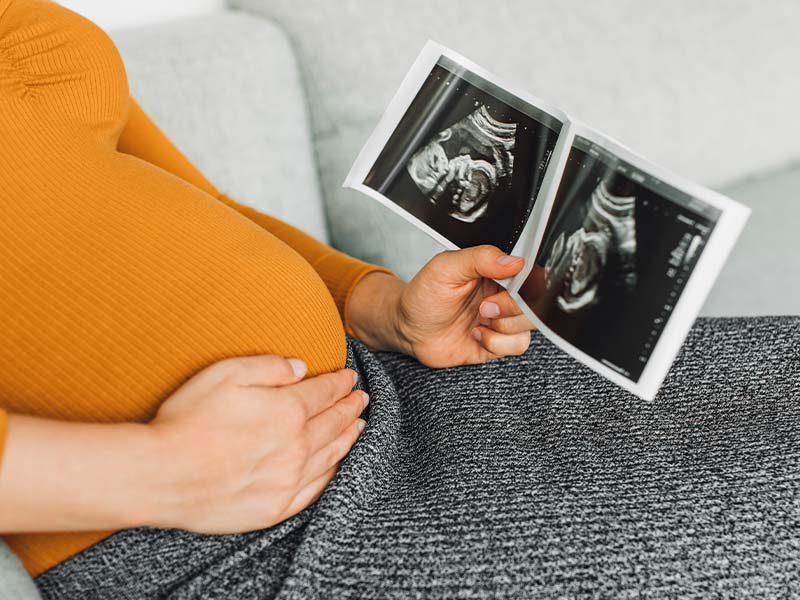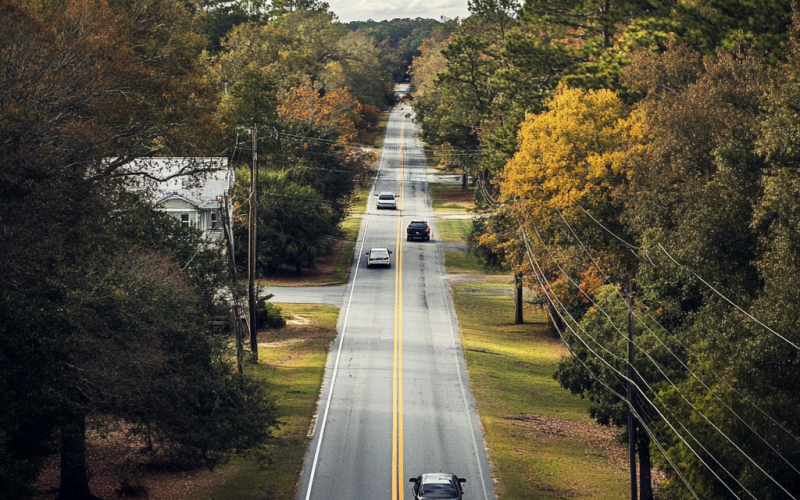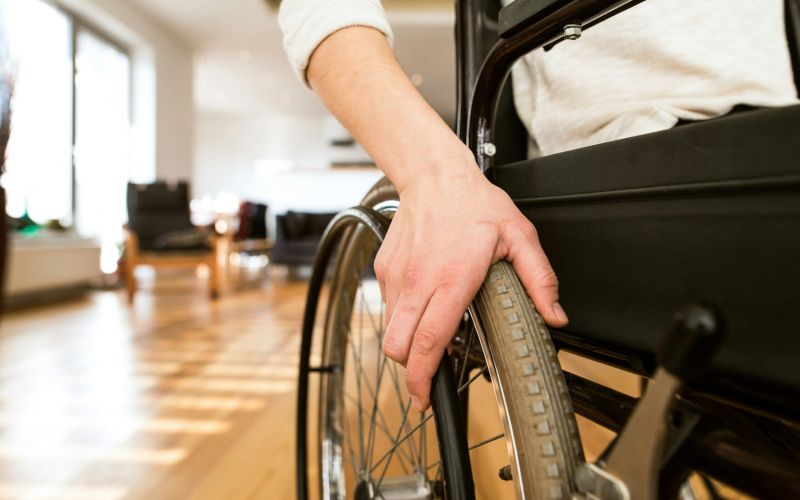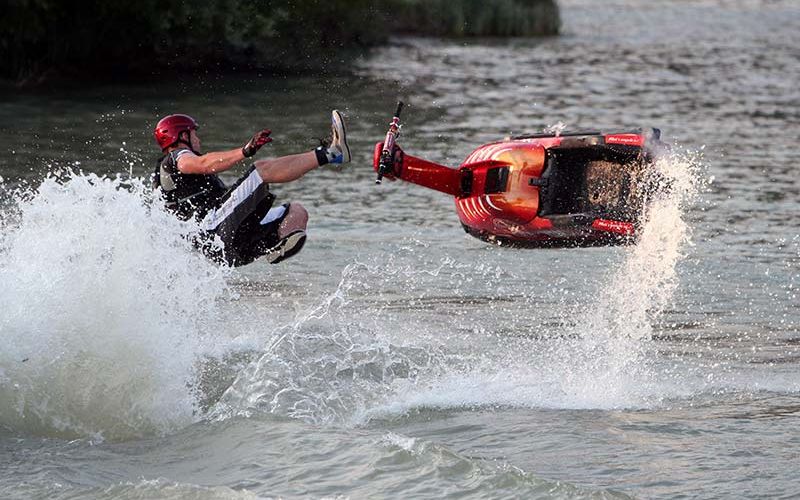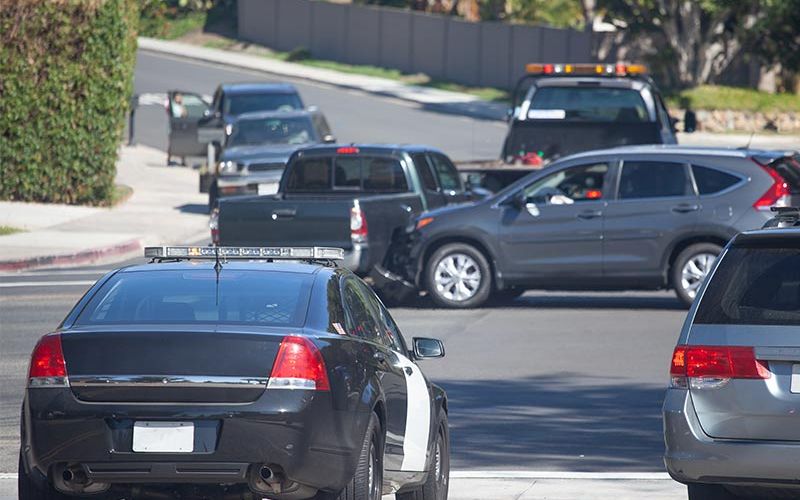Is the Camp Lejeune Lawsuit a Mass Tort or Class Action?
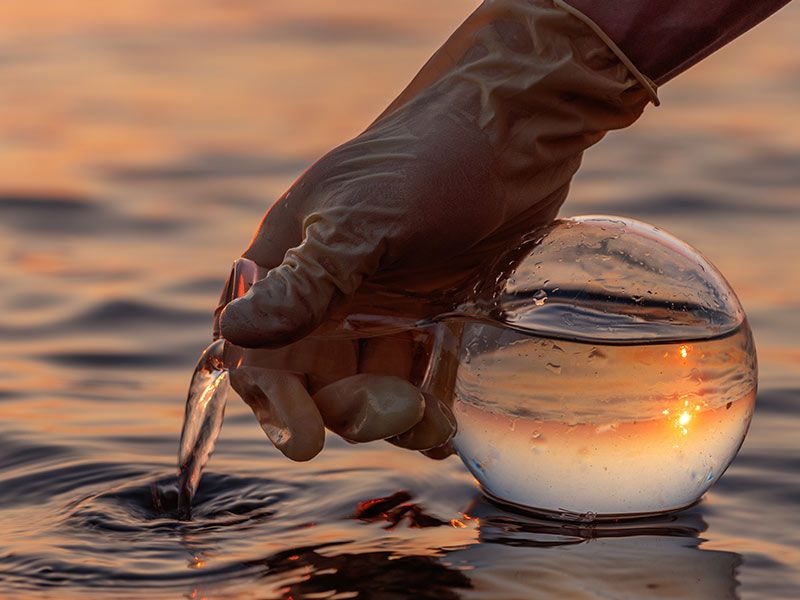


Water contamination at Camp Lejeune lasted for 30 years and affected hundreds of thousands of service members. It is unthinkable to imagine so many people who had dedicated themselves to the service of our nation were subsequently subject to this kind of toxic exposure at the Jacksonville, North Carolina military base.
Because of the U.S. government’s negligence, many victims have since developed cancer and suffered other adverse health effects from drinking water laced with toxins. Because of the mass scale and duration of the Camp Lejeune water contamination, attorneys estimate as many as 500,000 claims will be filed. The Congressional Budget Office (CBO) estimates payouts to victims will total $6.7 million.
Did you spend time at Camp Lejeune and subsequently fell ill? How can you pursue getting the money you deserve? Call the personal injury attorneys at HawkLaw, P.A., and our legal team will work to understand the nuances of your case and help you put together a thorough, personalized claim to help increase your chances of receiving the maximum compensation. To obtain a free case evaluation*, call our law firm today at 888-HAWKLAW.
How Government Negligence Has Hurt Thousands of Camp Lejeune Veterans
In 1982, the Marine Corps discovered volatile organic compounds (VOCs) in the drinking water of two water treatment plants, the Tarawa Terrace water treatment plant and the Hadnot Point water treatment plant, located at Camp Lejeune. Government negligence hurt thousands of service members, their family members, and other workers at the military installation.
Tragically, the contamination had gone on since the 1950s. Even after the Marine Corps found toxic elements in 1982, the U.S. government did not start to do anything about the toxic chemicals until three years after the discovery of those VOCs. It is bad enough that the contaminated drinking water had been present for decades; it is unconscionable to know the federal government quietly allowed it to continue for an even longer period of time.
In the meantime, people living and working at Camp Lejeune were drinking, cooking, showering, and otherwise routinely using the water, not knowing the VOCs were present. In total, the estimation is that this exposure affects more than one million people. The fact that the government allowed this toxic water contamination at Camp Lejeune and Marine Corps Air Station (MCAS) New River (which is in proximity to the Camp Lejeune military base) to occur is extremely disconcerting.
What Did the Government Find in Camp Lejeune Water?
At least 70 known toxic elements were found in Camp Lejeune water and are hazardous chemicals used for things such as dry cleaning (solvents for spot removal) and degreasing equipment. The primary toxins found in the water supply include the following chemicals.
- Trichloroethylene (TCE)
- Tetrachloroethylene (Perchloroethylene, PCE)
- Vinyl Chloride
- Methylene Chloride
- Benzene
Essentially, these chemicals were routinely used by the U.S. Marine Corps and an off-base dry cleaner, which both allowed them to seep into the ground, affecting nearby water wells. Long-term exposure to these and other chemicals lurking in the water supply can lead to adverse health effects and serious or permanent illnesses.
The U.S. Department of Environmental Protection (EPA) considers many of the chemicals found at the North Carolina military installation to be known human carcinogens. Tragically, so many people drank or inhaled these chemicals, making the Camp Lejeune event one of the worst cases of contaminated water in American history.
What Happens When People Are Exposed to These Chemicals?
The Agency for Toxic Substances and Disease Registry (ATSDR), a federal public health agency within the Health and Human Services Department, has been actively collecting data and performing an analysis of this horrendous situation.
ATSDR concludes the contaminants found in Camp Lejeune drinking water “likely increased” the risk of contracting many different cancer types, adverse birth effects, and other serious health conditions. To date, dozens of illnesses have been linked to VOC ingestion and exposure.
How Does the Camp Lejeune Justice Act Help Veterans Affected by Camp Lejeune Water Contamination?
The Camp Lejeune Justice Act is a component of the broader Honoring Our Pact Act of 2022, which was signed by President Joe Biden on August 10, 2022. Previously, the U.S. government had protection under the North Carolina law known as the “Statute of Repose” from any Camp Lejeune water contamination lawsuits that prevented people from filing for exposure that occurred more than 10 years ago. Now, this immunity is lifted.
With the signing of this bill, Congress and the President admit wrongdoing and are willing to compensate victims who meet specific criteria as outlined in the new law. No longer does the government deny it failed to protect, or at least warn, people who were routinely and unknowingly exposed to toxic water.
However, the process of filing a claim is not easy. A knowledgeable and experienced South Carolina personal injury attorney can help you to sort out the paperwork and take care of the complexities associated with filing for compensation. The way it is structured, you must take previous steps before filing a lawsuit. At HawkLaw, we can help you exhaust your other means of compensation and check to see if you have filed any required administrative claims for disability benefits with the Department of Veterans Affairs.
Who Qualifies for the Camp Lejeune Lawsuit?
While the Camp Lejeune Justice Act applies to military service members and their families, the right to file a claim is also extended to other individuals. If you were not on active duty or married to someone who was, but were another individual present at Camp Lejeune during the affected 34-year time period, you also may be eligible to file a claim under the new law.
- Soldiers and cadets
- Members of the Army, Navy, Marines, Air Force, and Coast Guard
- On-base workers (both civilians and contractors)
- Family members living on base
- Babies exposed in utero
- Veterans
- Reservists
- National Guard
Under the Camp Lejeune Justice Act, there are two main conditions for being eligible for benefits. To qualify, you must meet the following.
1. You (Or a Loved One) Spent at Least 30 Days on the Base Between 1953 and 1987
Criteria for filing a claim are very specific about the timeframe victims had exposure to contaminated water. According to the Act, victims must have lived or worked at Camp Lejeune between August 1, 1953, and December 31, 1987. Additionally, they must have spent a minimum of 30 days on the base; the timeline does not need to be consecutive.
2. You Suffered From an Adverse Health Condition Connected to Toxic Water Exposure
The second primary criterion for filing a claim includes the impact the Camp Lejeune water contamination had on their health. Persons who file a case must demonstrate they have an adverse health condition caused by contaminated water. Common illnesses and diseases people are being diagnosed with include the following:
- Aplastic anemia
- Bladder cancer
- Birth defects
- Breast cancer
- Esophageal cancer
- Infertility
- Kidney cancer
- Leukemia
- Liver cancer
- Lung cancer
- Miscarriage
- Myelodysplastic syndromes
- Multiple Myeloma
- Non-Hodgkin’s lymphoma
- Parkinson’s Disease
- Neurobehavioral Effects
- Renal toxicity
- Scleroderma
- And many other health conditions
Additionally, unique to the Camp Lejeune Justice Act, the framing of this law provides victims the right to a jury trial. It is important to understand, this is not typical for claims against the federal government. Essentially, Congress has made an exception in this case, but they also have put a time limit on a victim’s ability to file and have made the process very complex.
Working with an experienced personal injury attorney can help you because they know how to follow the directives and not miss any essential steps required in the process.
Is the Camp Lejeune Justice Act a Class Action Lawsuit?
The Camp Lejeune Justice Act is not currently a class action lawsuit. It is a law allowing a large number of affected victims to file individual lawsuits, known as a mass tort. As of now, there is currently no ongoing class action lawsuit because not enough time has passed to organize one. This situation is rapidly expanding as people come forward and, in time, with the number of plaintiffs growing each day, in time this legal situation may become a class action lawsuit.
What is the Difference Between a Mass Tort and a Class Action Lawsuit?
If you are uncertain if “class action lawsuit” and “mass tort” mean the same thing, you are definitely not alone. It is common for people to confuse these two phrases. Let’s break them down.
Mass Tort
Tort cases typically include a large group of individuals who all suffer from the same injury or type of damage from a situation. This might be a defective product, negligent service, or, much like the Camp Lejeune water contamination, a toxic substance. Essentially, a mass tort is a “collection” of independent lawsuits filed against the same wrongdoer. The damage each plaintiff suffers typically varies depending upon their level of injury, exposure, or other factors that caused them pain or a loss.
Class Action Lawsuit
Class action lawsuits generally include more people than a mass tort. It is a procedural device that allows one or many plaintiffs to file and prosecute on behalf of a large group. This approach is helpful to the courts because when a vast number of suits are filed, it is difficult for them to manage. It also provides plaintiffs strength in numbers for a case, as the more individuals who can demonstrate their injury or loss stemming from the same negligence or problematic issue further solidifies their claims.
How Do I File a Camp Lejeune Mass Tort Lawsuit?
To file a Camp Lejeune Mass tort lawsuit, you will need to assemble numerous pieces of documentation before August 10, 2024. The government provides you, as a claimant, with exactly two years to get your paperwork in from the date President Biden signed the Honoring Our Pact Act into law. While this sounds like plenty of time, two years pass by very quickly when there is much work to be done.
What Do Camp Lejeune Veterans Need to Do?
As a Camp Lejeune veteran, you will need to file a claim for disability compensation and provide supporting documents as evidence. Military personnel must start by pursuing VA benefits for their health problems.
- Military service records proving service at Camp Lejeune or MCAS New River
- U.S. records must show you spent at least 30 days between August 1953 and December 1987 while on active duty, serving in the reserves, or as a member of the National Guard.
- Present medical records stating you have one or more of the eight illnesses listed on the presumptive conditions list.
What Does a Family Member Need to Do?
As a family member of a Camp Lejeune victim, you will need to file a claim for disability compensation, then provide supporting documentation to prove your claim. Here is what you will need:
- Documentation showing your relationship to the military member who served at least 30 days at Camp Lejeune (e.g., marriage license, birth certificate, adoption papers)
- Show proof you lived at Camp Lejeune or MCAS New River between August 1953 and December 1987 for at least 30 days (e.g., base housing records, military orders, tax forms, utility bills, etc.).
- Medical records stating you have one of the 15 presumptive conditions as outlined by the VA
- Records must indicate the date your illness was diagnosed, along with past and current treatments.
- Evidence you paid for healthcare expenses
Dates are specific, so be sure to double-check your eligibility with the Department of Veterans Affairs. You or your loved one can file a claim independently, but the process is complex. If you miss a step, fill in a box incorrectly, or forget to include partial documentation, this can throw off your case or potentially cause you to miss an important deadline. Your attorney can also help you ascertain what you need and to document the specifics of your situation. The personal injury attorneys at HawkLaw are experienced with complicated paperwork and are equipped to help you file your lawsuit.
What Type of Compensation Should Camp Lejeune Water Contamination Victims Expect?
At this time, it is very difficult to estimate how much money you can expect to receive from your water contamination personal injury case. Since the law was just passed in August 2022, no cases have fully gone through the process yet, so there is no precedent to compare or estimate settlement amounts.
Lawsuits of this type typically include personal injury and wrongful death. It is likely victims will be awarded compensation based on the level of suffering, the seriousness of the illness, and other losses they experienced due to toxic water. Damages that may be available for Camp Lejeune victims to pursue include, but might not be limited to, the following:
- Medical bills
- Surgery costs
- Lost wages/loss of earning capacity
- Pain and suffering
- Emotional distress and mental anguish
- Lost business opportunities
- Loss of companionship
- Loss of consortium
- Funeral and burial expenses
- Loss of enjoyment of life
At this time, the Camp Lejeune Justice Act does not allow punitive damages. It is a good idea to consult with a South Carolina personal injury lawyer who can see what types of financial and other losses you may be eligible to pursue in your case.
How Can HawkLaw Help Me in My Camp Lejeune Case?
Pursuing litigation of any type takes time, financial resources, and knowledge. A NOLO study indicates that 91% of people who obtained an attorney to represent them in their case received a settlement, compared to 51% of plaintiffs who pursued their case without legal representation. The study also found that people who obtain legal representation tend to receive 3X higher payouts, even after deducting attorney’s fees.
The water contamination attorneys at HawkLaw are fully prepared to Fight for You. We will advocate for you and fight doggedly to help you win your case and get the most compensation possible.* As a digital-first law office, we will always have someone available for you to speak with when you need us. Ways HawkLaw can help include:
- Determining your eligibility to file a claim
- Gathering documentation of your diagnosis and medical outlook
- Collecting medical records to support your claim
- Speaking with the VA on your behalf
- Establishing a detailed account of your illness and showing documentation linking it to VOCs, chemicals, and solvents present at Camp Lejeune
- Estimating your total medical expenses and other costs
- Estimating full damages that go beyond medical bills, including pain and suffering
- Helping you to explore all avenues of compensation, so you get what you need
- Working with witnesses to help prove your case
- Filing the paperwork for your claim and, if necessary, filing a lawsuit on your behalf
The Camp Lejeune cases are a new legal area. It is important to work with an attorney with the right knowledge, and, if needed, trial experience. We are expecting this mass tort to get complex with the sheer number of cases being filed, coupled with the fact there is no precedent. Essentially, it is new territory for victims, attorneys, and the courts. If this mass tort becomes a class action lawsuit, you will be ahead of the curve since you will have all your documentation filed and your evidence in order.
Anyone who is eligible to file for Camp Lejeune compensation should consider getting started on their claim as soon as possible. The two-year statute of limitations is not very long to make your claim as it takes time to build a case, and the U.S. government has made pursuing Camp Lejeune compensation very complex. The HawkLaw team will stand with you every step of the way.
The Sooner You File, The Better
The effects of contaminated drinking water are tragic and have created much suffering for people who worked for or otherwise supported the missions of the U.S. government. It is only just that the victims who became sick or lost loved ones to illnesses originating from the contaminated water supply at Camp Lejeune receive compensation for their medical bills, lost wages, suffering, and overall detriment to their quality of life. It is not anyone’s fault because they had no knowledge or way to protect themselves. This is on the U.S. government.
If you, or a loved one, is experiencing the effects associated with toxic water exposure due to the VOCs found at Camp Lejeune, and you meet the eligibility requirements established by the U.S. government, the caring and compassionate attorneys at HawkLaw are here to help you. No amount of money can replace the types of losses you suffer, but obtaining compensation can perhaps ease your suffering.
Time is limited. The sooner you file, the better. To get started, contact the attorneys at HawkLaw today by calling our law office at 888-HAWKLAW or by completing our convenient online contact form. A member of our legal team will get right back to you to arrange a free consultation*.
Frequent Answered Questions
The amount of compensation awarded to toxic contamination victims will likely vary depending upon a plaintiff’s specific situation.
The number of plaintiffs who join the class action lawsuit can also affect how much is awarded to victims, along with the amount of money the U.S. government has set aside to pay Camp Lejeune victims. It is likely victims will be paid settlements or decided by a jury trial. At this time, it is too early to say.
If your loved one is deceased, you or your designated legal representative can file a claim for compensation on their behalf. The Camp Lejeune Justice Act provides this stipulation if the deceased was exposed to the toxic water during the specified period of time as outlined by the law. Family members who are eligible to file on their loved one’s behalf include their spouse, child, parent, or sibling.
Yes, you can file a lawsuit even if you already receive disability compensation for your health condition. Collecting VA disability benefits related to your service at Camp Lejeune or MCAS New River does not preempt you from pursuing additional compensation in a Camp Lejeune water contamination lawsuit. You can pursue a claim to receive a monetary award for other losses, such as wages, pain and suffering, emotional trauma, and any other damages you or your family member suffered.
VA benefits cover your health care relating to your presumed condition, but it does not compensate you for other damages and losses. What might happen is any benefits received might be deducted from your total Camp Lejeune award, but since there is no precedent for settlements at this time, it is hard to say. A knowledgeable attorney can look at your specific situation and clarify how federal laws apply to you.
John D. Hawkins
John Hawkins is the Founder and CEO of HawkLaw He has been licensed to practice law in South Carolina since his graduation with honors in 1994 from the University of South Carolina School of Law, where he was on the Law Review and Order of Wig and Robe.
-
$3,000,000*SettlementTrucking Accident
-
$1,005,000*SettlementCar Accident
-
$575,000*SettlementPersonal Injury
"*" indicates required fields



